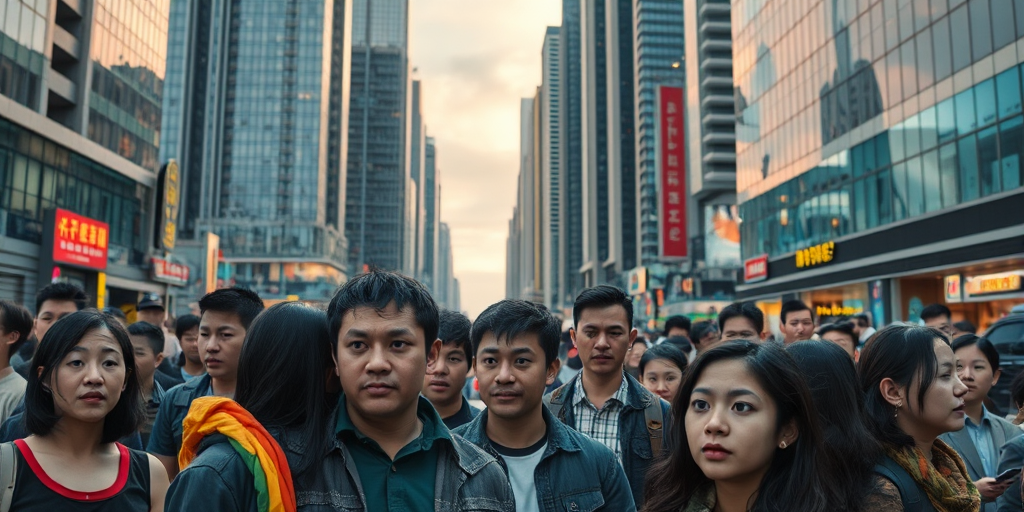**Apple Faces Pressure from China: LGBTQ+ Apps Blued and Finka Removed from App Store**
In a move that underscores the ongoing tensions between multinational companies and local governance in restrictive environments, Apple has recently removed two significant LGBTQ+ dating apps, Blued and Finka, from its App Store in China. This decision followed direct orders from the Cyberspace Administration of China, the nation’s internet regulatory body, highlighting the challenges faced by tech giants operating within countries with differing social and political climates.
**Background: Limited Options for LGBTQ+ Individuals in China**
For the LGBTQ+ community in China, dating apps have provided a crucial connection platform in a country where public acceptance and support for LGBTQ+ rights are limited. Blued and Finka, both operated by BlueCity, were exclusive to the Chinese market until their removal. These apps have joined the ranks of other banned platforms like Grindr, which has been unavailable on Apple’s store since 2022. Blued, known internationally as HeeSay, had previously stopped new user registrations in July, although this limitation was lifted by August.
Narrating the broader social context, it’s important to acknowledge China’s intensified scrutiny and crackdown on LGBTQ+ rights. Recent years saw significant organizations shut down, including the closure of Beijing’s LGBT Center in 2023. These events reflect ongoing efforts by Chinese authorities to control LGBTQ+ visibility and advocacy within the country.
**The Company’s Position and Operational Challenges**
Tech giant Apple, when queried about the app removals, stated its obligation to adhere to the local laws of countries it operates in. This compliance illustrates a recurring dilemma for multinational companies, often caught between upholding their corporate values and adapting to local regulations. While trying to expand their market reach, these entities sometimes have to compromise on principles, such as supporting diverse communities.
Apple’s mandatory compliance brings into focus the operational challenges that tech companies face in environments with restrictive policies. For example, despite owning other international interests, BlueCity navigated these hurdles by focusing domestically on the healthcare sector, emphasizing HIV/AIDS prevention and treatment through its non-profit initiatives.
**Community Impact and Local Reactions**
The app removals have a profound impact on the LGBTQ+ community in China, as Blued and Finka provided discrete and accessible means for social interactions and networking within a marginalized group. A local Shanghai-based LGBTQ+ activist provided insight, saying, “The removal of these apps further isolates an already vulnerable community, stripping away yet another layer of social connection.”
With these removals, the existing landscape for LGBTQ+ individuals in China becomes increasingly challenging. Concerns over censorship and lack of safe spaces persist, exacerbating feelings of invisibility and disenfranchisement among the community.
**Resonance with Global and Local Trends**
This incident adds another chapter to the narrative of global companies being confronted with domestic policies that contrast with international human rights standards. Similar contentions are observed on a global scale, where tech firms negotiate cross-cultural differences and ethical quandaries.
Locally, residents in communities supportive of LGBTQ+ rights view this as a stark reminder of the broader global struggle for equality. There are fears that if such trends continue, they might influence local policies or embolden similar restrictive measures elsewhere.
**Future Implications and Balancing Perspectives**
Looking ahead, the removal of Blued and Finka might encourage users to seek alternative, potentially less secure platforms, raising concerns regarding privacy and safety. The incident serves as a reminder of the Internet’s fragility as a haven for free expression, particularly for marginalized groups.
Pragmatically, companies like Apple may continue to encounter criticism for prioritizing market access over principles of free expression and diversity. However, they are also mandated to maintain operational viability in diverse jurisdictions, which might lead to strategic adjustments or advocacy for universal policies that align more closely with progressive values.
**Local Resources and Support Networks**
For those navigating these developments, local LGBTQ+ advocacy groups remain an essential source of support, providing resources and assisting individuals in finding alternative methods to build community and connect safely. It is crucial for community networks in China to continue their advocacy, amplifying voices in need of representation.
In conclusion, while the removal of Blued and Finka from China’s App Store is a setback for LGBTQ+ connectivity and rights within the region, it also serves as a critical reflection point for global dialogue on internet freedom and equality. The community, allies, and global observers continue to watch closely as these events unfold, hoping for paths toward inclusion and tolerance amid restrictive climates.







